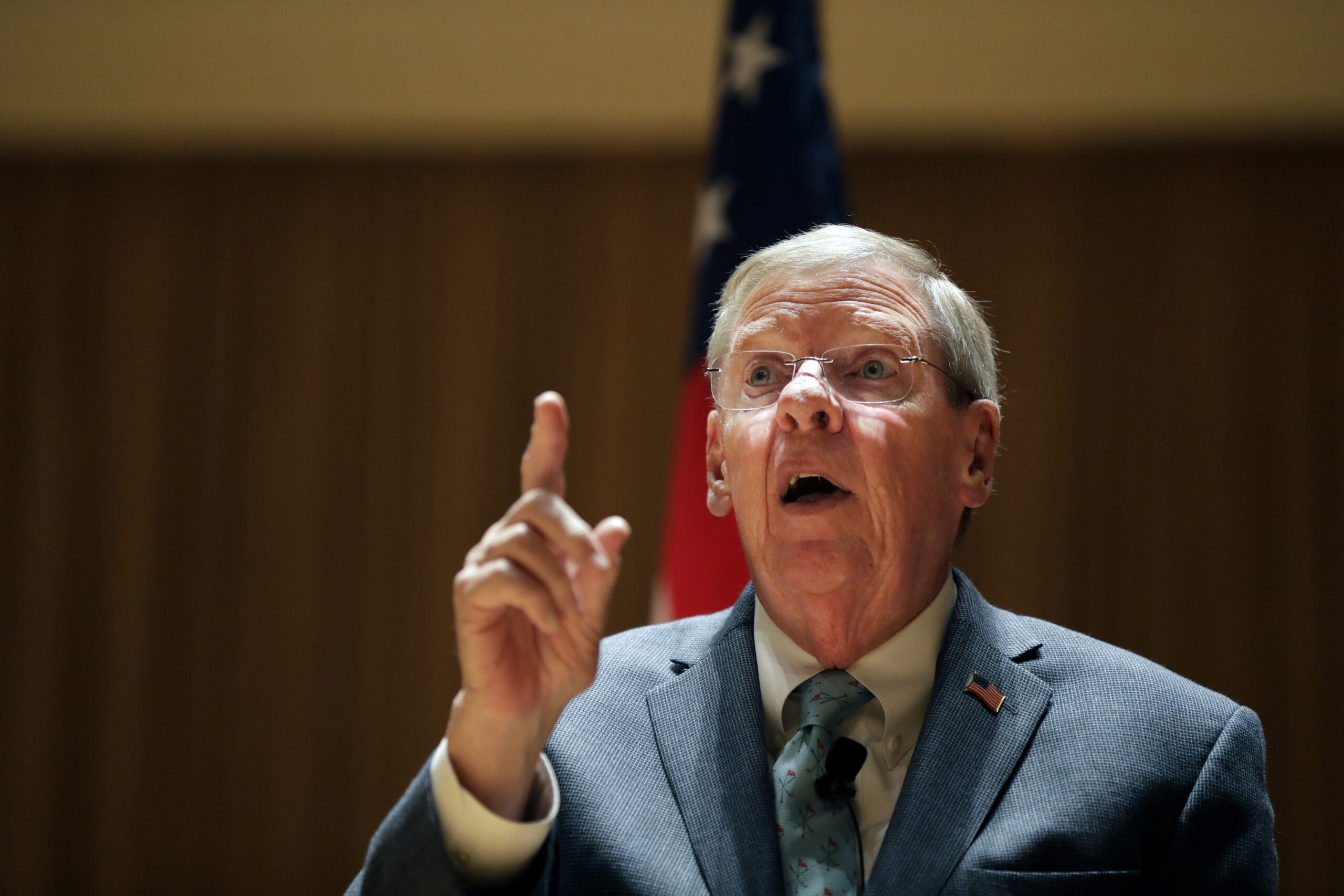For Senator Isakson, Opioid Crisis Is Personal

Sen. Johnny Isakson will be a guest speaker at Georgia’s statewide opioid task force meeting Thursday in Augusta.
David Goldman / Associated Press
Georgia’s statewide opioid task force meets Thursday in Augusta where Sen. Johnny Isakson will be a guest speaker. For Isakson, the subject matter is personal.
Isakson’s grandson, Charley Joyner, was about to graduate from Georgia Southern with honors when he died of an opioid overdose in December 2016.
“He was a wrestler and a baseball player and a good kid all around. He worked on one of my campaigns,” Isakson said. “At some point in time he got involved in some drugs. We don’t know how and when and why and how much, but he did.”
Isakson said his son and daughter-in-law have urged him to speak publicly about Joyner in years since.
Joyner was one of more than 900 opioid-related deaths in Georgia in 2016. The Department of Public Health says in 2017 there were more than 1,000.
“If my talking about my story and what happened in our family can [help others] look for and deal with a potential drug problem in their own family, then we’ve made a great effort,” he said. “And that’s what I want to try and do.”
That’s why Isakson is speaking at the meeting. He said he’s trying to highlight what he considers the root of the issue, which sometimes gets lost: “It’s crystal clear to me that addiction is the problem and there’s not a lot of focus on how you stop addiction. The drug is the focus which is what the addiction is tracked to but it’s the addiction that causes the problem so I try to talk about it every time I get a chance.”
He applauds what has been done, like restrictions on painkiller prescriptions, but says the crisis is about more than just the pills themselves.
“We need all hands on deck. We need everybody working on this,” he said. “It’s not something that’s going to go away. It’s going to get worse and not better, and the sooner we recognize that, the sooner we’ll have better results.”
Isakson has high hopes for a bipartisan opioid crisis response bill he has cosponsored. It would push the NIH and FDA to develop non-addictive painkillers, expand the CDC’s involvement in the issue and improve substance abuse programs, among other things.
Georgia’s Attorney General Chris Carr organized the opioid task force last year to improve communication on the topic. This is the third meeting. More than 370 stakeholders are participating, ranging from Georgia Dental and Sheriffs Associations to the Georgia University System.








